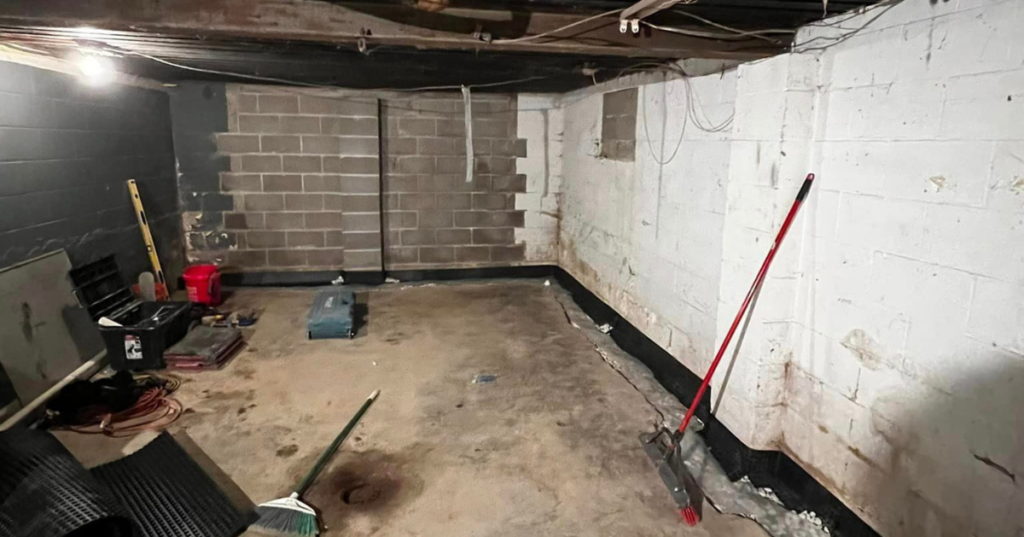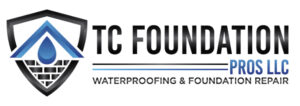As a homeowner, you might not think about your foundation until you notice unsettling signs like cracked walls or uneven floors. Understanding the importance of foundation repair maintenance is essential to protect your property’s value and safety. You’ll want to recognize the types of damage that can occur and the best repair methods available. More importantly, knowing how to prevent these issues from arising in the first place can save you time and money. So, what are the key steps you should take to guarantee your foundation remains sound?
Key Takeaways
- Regularly inspect for signs of foundation problems, such as cracked walls, uneven floors, and sticking doors, to catch issues early.
- Maintain proper drainage systems around your home to prevent soil erosion and moisture changes that can affect foundation stability.
- Understand the types of foundation damage, including vertical and horizontal cracking, to assess the severity of issues.
- Utilize repair methods like helical piers or slab jacking to address foundation problems promptly and effectively.
- Implement preventive measures, such as soil stabilization and regular maintenance, to protect your foundation and ensure long-term stability.
Importance of Foundation Maintenance
Maintaining your foundation is essential for the overall health of your home. A solid foundation supports your entire structure, ensuring stability and longevity. Regular foundation inspections are important to identify any potential issues before they escalate.
During these inspections, professionals assess the integrity of your foundation and evaluate factors such as soil health, drainage, and moisture levels.
Soil health plays a significant role in the stability of your foundation. The type of soil underneath your home can affect how well your foundation performs. Expansive clay, for instance, can swell when wet and shrink when dry, exerting pressure on your foundation.
If you notice any changes in soil moisture around your property, it’s imperative to address these issues promptly. Maintaining proper drainage systems, such as gutters and downspouts, helps direct water away from your foundation, preserving soil health and preventing erosion.
Common Signs of Foundation Problems
Recognizing the signs of foundation problems is essential for homeowners who want to protect their investments. Your home’s foundation bears the weight of the entire structure, and any signs of distress should be taken seriously.
Cracked walls are one of the most noticeable indicators of foundation issues. These cracks can appear in various locations, such as exterior walls, interior drywall, or around windows and doors. If you notice cracks wider than a quarter-inch or those that seem to be expanding, it’s vital to address this problem promptly.
Another common sign of foundation trouble is uneven floors. You might find yourself walking on sloped surfaces or noticing that some areas of your flooring feel higher or lower than others. This unevenness can lead to discomfort and even safety hazards, especially if you have small children or elderly residents in your home.
Additionally, you should pay attention to doors and windows that stick or don’t close properly. This issue often arises when the foundation shifts, causing the frames to warp.
It’s also wise to inspect for gaps between walls and ceilings, as these can indicate structural movement.

Types of Foundation Damage
Understanding the various types of foundation damage is essential for homeowners wanting to safeguard their property. There are several forms of damage you might encounter, each with distinct characteristics and implications.
One common type is vertical cracking, often resulting from soil settlement or expansion. These cracks typically appear in a straight line and can indicate that your foundation is adjusting to shifting soil conditions.
On the other hand, horizontal cracking patterns may suggest more severe issues, such as excessive pressure from expansive soils or water accumulation. Recognizing these differences is vital, as they can help you identify the severity of the damage.
Another type of foundation damage involves bowing or leaning walls, which can occur due to soil erosion or excessive moisture. When soil surrounding your foundation becomes saturated, it exerts pressure that can compromise structural integrity.
If you notice walls that appear to be bulging or leaning, it’s a signal that immediate attention is needed.
Additionally, you may encounter issues related to differential settlement, where one part of your foundation sinks while another remains stable. This can lead to uneven floors and misaligned doors or windows, affecting your home’s overall functionality.
Repair Methods and Solutions
When addressing foundation damage, several effective repair methods and solutions can restore your home’s stability and integrity. One common approach in Pittsburgh foundation repair is the use of helical piers, which are screw-like steel shafts driven deep into the ground to reach stable soil. This method not only lifts and stabilizes your foundation but also prevents future settling.
Another popular technique is slab jacking, which is ideal for situations where your concrete slab has sunk. This process involves injecting a specially formulated mixture beneath the slab to raise it back to its original position. It’s a non-invasive solution that minimizes disruption to your property.
Waterproofing solutions are also essential for maintaining a healthy foundation. By applying sealants and installing drainage systems, you can prevent water intrusion that often leads to foundation damage. Confirming your home has proper waterproofing can save you from costly repairs down the line.
Additionally, underpinning techniques, such as regular concrete underpinning, offer a more long-term solution for settling foundations. This method reinforces the foundation by extending its depth and providing a more stable base. Each of these repair methods has its unique advantages, and understanding them can empower you to make informed decisions.
Ultimately, addressing foundation issues promptly can safeguard your investment and guarantee your home remains a safe and comfortable place for you and your family. By exploring these repair methods, you actively protect your property and enhance its longevity.
Preventive Measures for Homeowners
Preventive measures are indispensable for homeowners looking to protect their foundations from potential damage. By implementing effective strategies, you can greatly reduce the risk of costly repairs down the line.
One of the most essential aspects of foundation protection is addressing drainage solutions. Verify that your landscape directs water away from your home. This may involve grading your yard or installing gutters and downspouts that effectively channel rainwater away from the foundation.
In addition to proper drainage, you should also reflect on soil stabilization. The type of soil around your home plays a key role in maintaining foundation integrity. Expansive soils, like clay, can swell when wet and shrink when dry, leading to shifting foundations.
To mitigate this, you can use techniques such as installing a moisture barrier or employing soil stabilization methods. These may include adding lime or cement to the soil to improve its load-bearing capacity and reduce movement.
Regular maintenance is key. Inspect your foundation for cracks or signs of movement and monitor your landscaping for any drainage issues. You might also want to think about professional assessments periodically.
By taking these proactive steps, you not only protect your foundation but also guarantee your home remains a safe haven for you and your family. Remember, a well-maintained foundation is a cornerstone of a secure and comfortable home environment.
In the domain of homeownership, your foundation is the bedrock of safety and stability. By staying vigilant and addressing foundation issues promptly with TC Foundation Pros LLC, you can prevent minor cracks from morphing into chasms of chaos. Embrace preventive measures as your shield against future problems, safeguarding your investment for years to come. Remember, a solid foundation not only supports your home but also nurtures your peace of mind, ensuring your sanctuary remains a haven of comfort and security.
